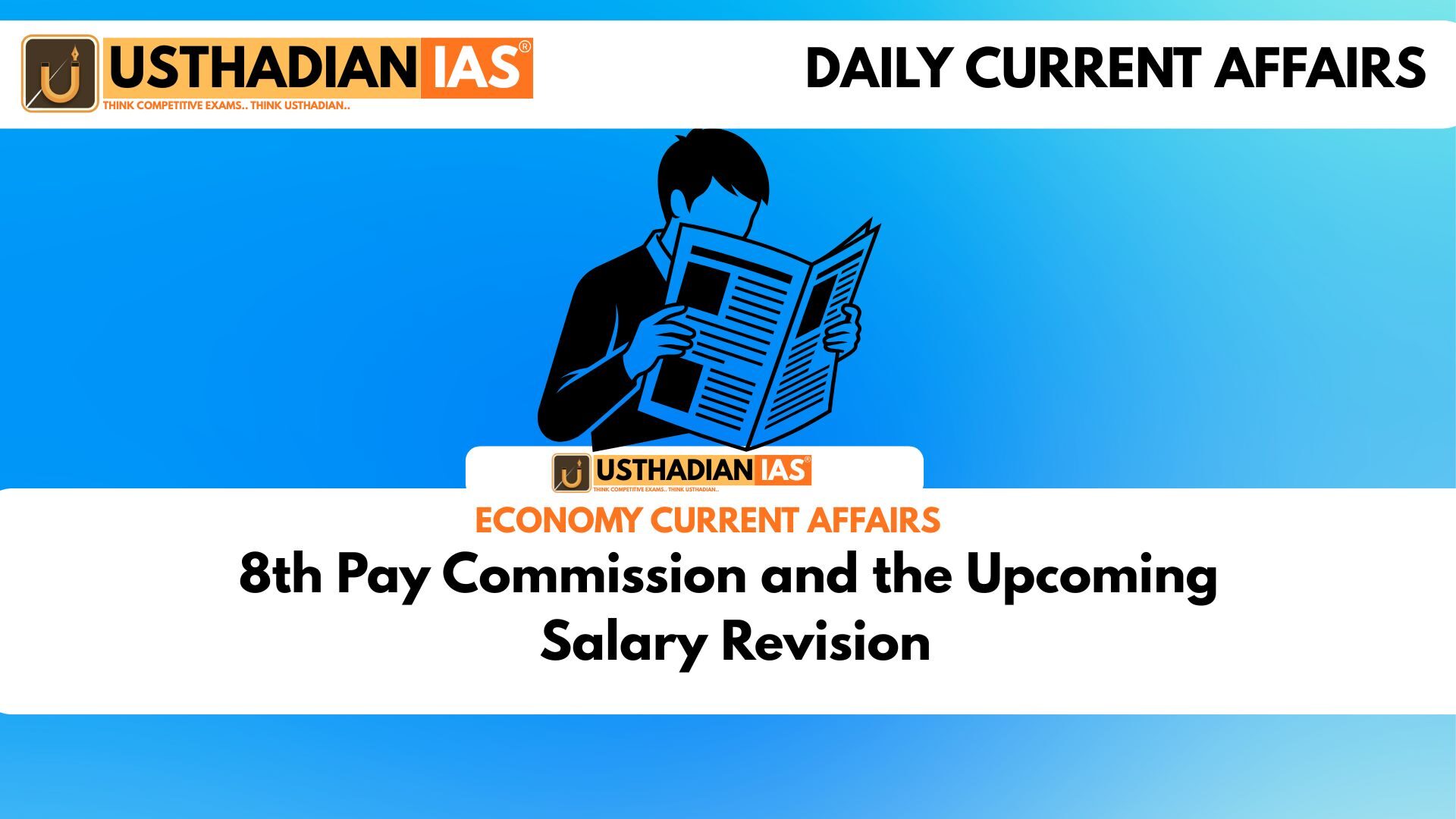Announcement of the 8th Pay Commission
8th Pay Commission and the Upcoming Salary Revision: The 8th Pay Commission marks another major step in the government’s efforts to enhance the salaries and benefits of central employees. Prime Minister Narendra Modi announced the formation of this new commission on January 16, 2025, aiming to restructure the pay, allowances, and pension framework of central employees.
This decision comes shortly after a 3% increase in Dearness Allowance (DA), which raised the DA from 55% to 58% for over 50 lakh government employees. This revision, under the existing 7th Pay Commission, was implemented from October 1, 2025, giving a festive boost to employees before Diwali.
Static GK fact: The first Pay Commission was established in 1946, and since then, new commissions are typically set up every 10 years.
Implementation Timeline and Pattern
While the formation of the 8th Pay Commission has been confirmed, the implementation is still awaited. The process usually follows a consistent pattern seen in previous commissions.
The 7th Pay Commission was formed in 2014, submitted its report in 2015, and came into effect in 2016. Following this trend, experts anticipate the 8th Pay Commission’s recommendations will likely be implemented by 2027.
No official notification regarding the report submission date or approval timeline has yet been released.
Static GK Tip: The Pay Commission’s recommendations, once approved, apply to both central employees and defence personnel, often influencing state pay revisions as well.
Expected Salary Hike and Benefits
Under the upcoming 8th Pay Commission, the minimum basic salary is projected to rise from ₹18,000 to around ₹26,000 per month. The overall hike may vary depending on Pay Matrix levels, DA rate adjustments, and fitment factors.
This revision aims to offset inflation, enhance living standards, and ensure parity with economic growth. Additionally, pensioners will also see benefits from revised pension fixation formulas.
Static GK fact: The fitment factor used in the 7th Pay Commission was 2.57, which determined the increase in basic pay for all employees.
Key Objectives of the 8th Pay Commission
The Commission’s main goals include reviewing:
- Basic pay structure to match current cost of living.
- Dearness Allowance (DA) adjustment formula.
- House Rent Allowance (HRA) and Travel Allowance (TA)
- Pension structure for retirees.
Nearly 1.15 crore individuals, including serving employees and pensioners, are expected to benefit once implemented.
Broader Impact on the Economy
The revision is expected to stimulate consumer demand, particularly in housing, automobiles, and retail sectors, as salary increases lead to higher disposable income. Economists note that past pay revisions have contributed significantly to GDP growth through increased spending power.
However, it also poses fiscal challenges, as higher salary outlays may increase the government’s expenditure burden.
Static GK Tip: The Finance Ministry oversees the implementation of Pay Commission recommendations after cabinet approval.
Static Usthadian Current Affairs Table
8th Pay Commission and the Upcoming Salary Revision:
| Topic | Detail |
| Announcement Date | January 16, 2025 |
| Announced By | Prime Minister Narendra Modi |
| Current DA | 58% (as of October 2025) |
| Minimum Basic Pay (Expected) | ₹26,000 per month |
| Implementation Year (Expected) | 2027 |
| Beneficiaries | 50 lakh employees and 65 lakh pensioners |
| Last Pay Commission | 7th Pay Commission (implemented in 2016) |
| Fitment Factor (7th CPC) | 2.57 |
| Frequency of Pay Commission | Every 10 years |
| Supervising Ministry | Ministry of Finance |








